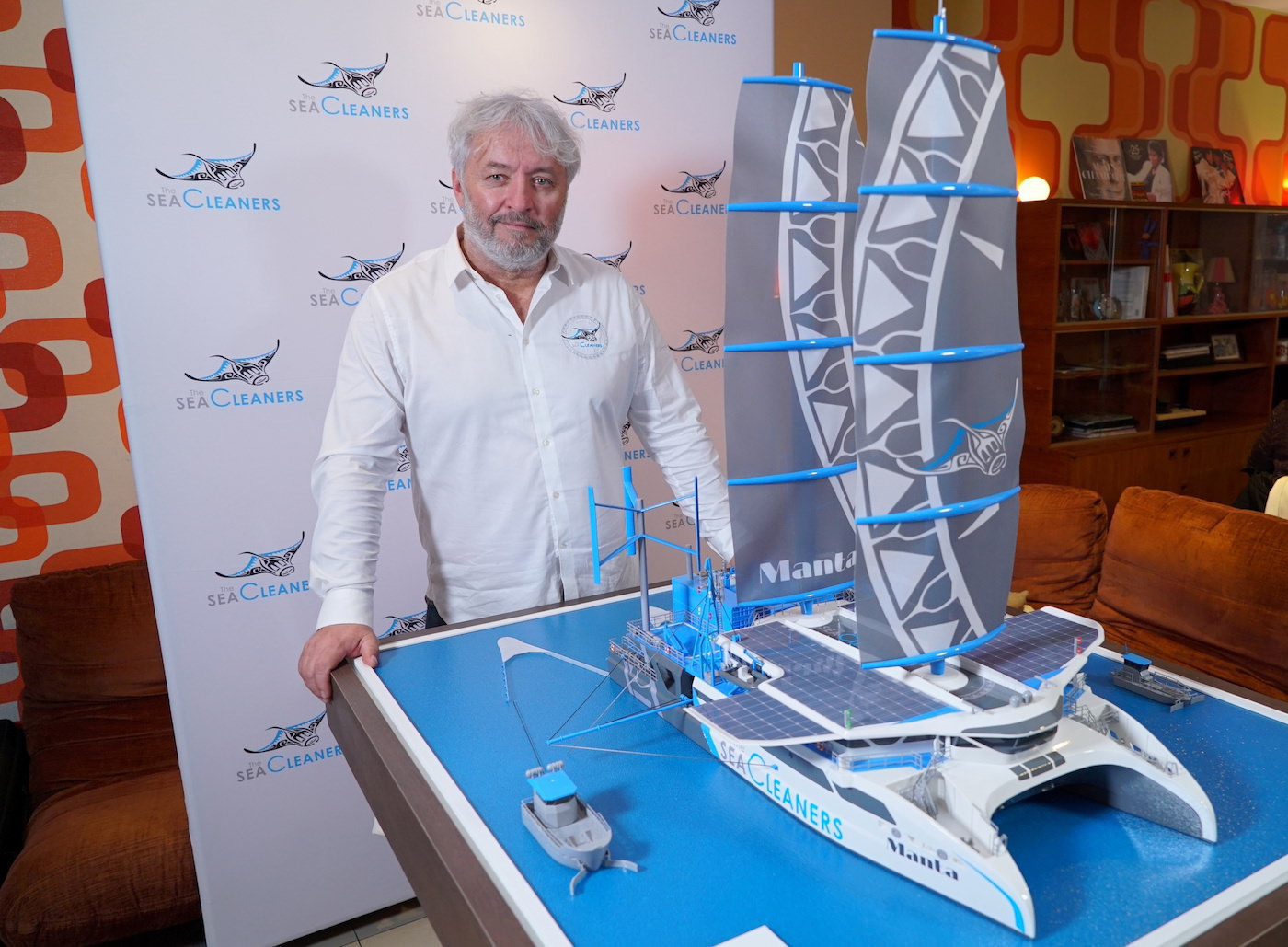
Franco-Swiss skipper and founder of 'The SeaCleaners' NGO, Yvan Bourgnon, poses next to a model of the 'Manta', a giant sailing boat which will collect and recycle the oceans' floating plastic waste, during an interview with Reuters in Paris, France, January 26, 2021. REUTERS/Lucien Libert
Yvan Bourgnon has spent his career racing sailing vessels around the globe as a competitive yachtsmen. Over the years, he said, his encounters with floating carpets of trash became more and more frequent.
Related Book: Plastic Ocean, How a Sea Captain’s Chance Discovery Launched a Determined Quest to Save the Oceans by Charles Moore
That inspired his new venture: the Manta, a 56-metre (183 foot) long catamaran propelled by a combination of high-tech sails and electric motors.
Right now, it exists only on the drawing board, but Bourgnon and his team hope to turn into a working prototype that can be launched in 2024.
As the boat moves through the water, conveyor belts will scoop up waste, sort it, then feed it into a burner. That will melt the plastic, producing gas which drives a turbine, and in turn generates electricity for the boat’s systems to use.
That electricity, along with solar cells and wind turbines on the boat’s deck, will make the boat 70% self-sufficient in energy, according to Bourgnon.
He said that if 400 of the boats were to be made, they could clean up one third of the plastic debris in the oceans. He said even conservative estimates project that, by 2060, there will be three times more waste in the sea than now.
“To fold your arms and say ‘No, we’ll do nothing, we’ll leave it, we’ll focus on dry land, we’ll leave the waste in the ocean,’ is totally irresponsible,” he said.
(Writing by Christian Lowe, Reuters)
gcaptain.com
Δεν υπάρχουν σχόλια:
Δημοσίευση σχολίου